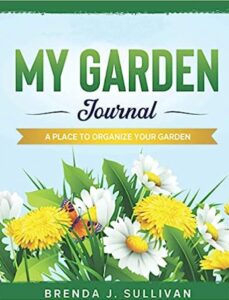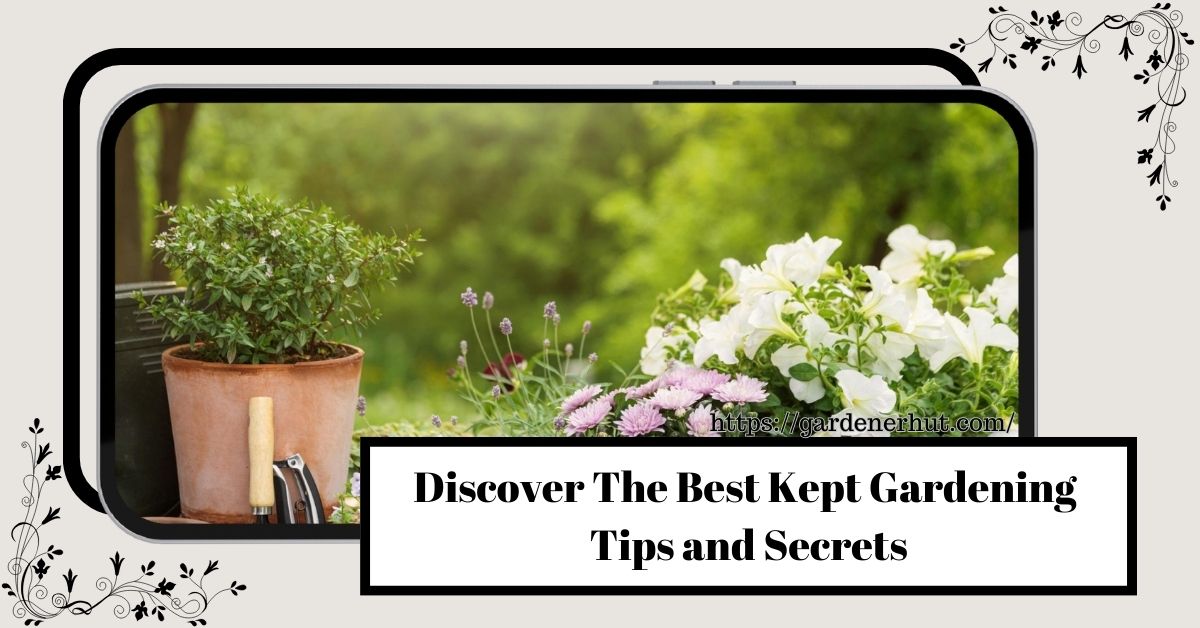The Best Kept Gardening Tips and Secrets
Introduction
Welcome to our comprehensive guide on the best gardening tips and secrets. Whether you’re a seasoned gardener or a beginner, you’ll find a wealth of knowledge here, including the top horticulturist’s best kept gardening tips and secrets, planting advice, pruning techniques, pest control strategies, and garden hacks. Let’s dig in!
The Ultimate Secret to Vegetable Gardening Tips
Gardening is not just about planting seeds and waiting for them to grow. It’s a science that requires knowledge, patience, and a bit of old-fashioned gardening wisdom. Here are some essential secret gardening tips to get you started:
Soil Preparation
The first step to a productive vegetable garden is preparing the soil. Good soil is rich in nutrients and has the right texture to hold water without becoming waterlogged. You can improve your soil by adding compost, mulch, or potting soil. Coffee grounds are also an excellent addition to your soil as they add nitrogen, which plants need to grow.
Understanding Your Local Climate and Garden Zone
Different plants thrive in different climates. Understanding your local weather and garden zone will help you choose the right plants for your garden. For example, tomatoes love warm weather, while lettuce prefers cooler temperatures.
The Art of Scheduling in Gardening
Gardening is all about timing. Knowing when to plant your seeds, when to prune your plants, and when to harvest your produce can make a big difference in your garden’s success.
Starting Small and Manageable
If you’re new to gardening, start with a small, manageable garden. Choose easy-to-grow plants like lettuce, radishes, or sweet peas. As you gain experience, you can expand your garden and try more challenging plants.
The Secrets and Tips to Planning Your Garden Layout
Planning your garden layout is an essential part of gardening. Here are some tips to help you plan your garden:
Following Planting Directions on the Seed Packet
Seed packets come with instructions on when to plant, how deep to plant, and how far apart to space your plants. Following these instructions will give your plants the best chance of success.
Saving Money by Planting Seeds Directly in the Garden
Some plants, like beans and peas, can be planted directly in the garden, saving you money on seedlings.
The Benefits of Planting Seeds as Seedlings
Other plants, like tomatoes and peppers, do better when started as seedlings indoors and then transplanted to the garden. This gives them a head start and helps them survive in colder climates.
The Importance of Labeling Your Plants
Labeling your plants with plant markers can help you remember what you planted and where. This is especially helpful when your plants are seedlings and all look similar.
Unfolding the Secret and Tips to Getting Started with Your Garden
Now that you’ve planned your garden, it’s time to get started. Here are some tips to help you get your garden off to a great start:
Buying Vegetable Starts at the Garden Center vs. Starting Your Own
Starting your own seeds can be rewarding and cost-effective, but it can also be challenging, especially for beginners. Buying vegetable starts at the garden center can give your garden a head start.
Hardening Seedlings off Before Planting
Before you plant your seedlings in the garden, you need to harden them off. This means gradually exposing them to outdoor conditions to help them adjust to the change in environment.
Preparing the Garden Beds with Good Soil
Before you plant your seeds or seedlings, prepare your garden beds with good soil. Add compost, mulch, or potting soil to improve the soil’s texture and nutrient content.
Ensuring Your Garden Gets Consistent Moisture
Plants need consistent moisture to grow. Install a drip irrigation system or use a rainwater collection system to ensure your plants get the water they need.
Maintaining Your Garden Tips and Secrets
Maintaining your garden is an ongoing task. Here are some tips to help you keep your garden healthy and productive:
Natural Strategies for Weed Control
Weeds can compete with your plants for nutrients and water. Use natural strategies for weed control, like mulching, pulling weeds by hand, or using a hoe.
The Importance of Mulching Your Vegetable Garden
Mulch helps retain moisture, suppress weeds, and improve soil health. You can use straw, grass clippings, or compost as mulch.
Having a Pest Control Plan
Pests can damage your plants and reduce your harvest. Have a pest control plan in place, like using natural predators, traps, or organic pesticides.
The Best Fertilizer for Your Garden
The best fertilizer for your garden depends on your soil and the plants you’re growing. A soil test can help you determine what nutrients your soil needs.
Harvesting at the Right Time
Harvesting at the right time ensures your produce is at its peak of flavor and nutrition. Most vegetables are best harvested when they’re young and tender.
The Secret Tips to Spending Time in Your Garden
Spending time in your garden each day can help you spot problems early, like pests or diseases, and enjoy the fruits of your labor. Here are some tips to help you make the most of your time in the garden:
The Benefits of Spending Time in Your Garden Each Day
Spending time in your garden each day can help you spot problems early, like pests or diseases. It’s also a great way to relax and enjoy nature.
Keeping a Garden Journal

Keeping a garden journal can help you track your garden’s progress, note what works and what doesn’t, and plan for future seasons.
Using the Right Tools for Gardening
Using the right gardening tools can make your gardening tasks easier and more efficient. Essential gardening tools include a shovel, a hoe, a rake, pruning shears, and a watering can or hose.
Keeping Your Tools Clean
Keeping your tools clean can help them last longer and prevent the spread of diseases in your garden.
Planning for Garden Maintenance
Garden maintenance includes tasks like watering, weeding, pruning, and pest control. Planning for these tasks can help you stay on top of your garden maintenance and keep your garden healthy and productive.
The Joy of Gardening
Gardening is not just about growing food. It’s also about enjoying the process, connecting with nature, and reaping the rewards of your hard work. So be patient, take time to enjoy your garden, and don’t forget to stop and smell the roses (and don’t forget to deadhead them for continuous blooms!).
Conclusion
We hope these gardening tips and secrets help you create a garden that’s productive, beautiful, and a joy to spend time in. Remember, the best garden is the one that brings you joy. So get out there, get your hands dirty, and enjoy the process of gardening.
Frequently Asked Questions (FAQs) About Gardening
Q1: What is the best time to start a garden?
Answer: The best time to start a garden depends on your local climate and the plants you want to grow. Generally, spring and fall are the best times to start a garden.
Q2: How often should I water my garden?
Answer: The frequency of watering depends on your plants’ needs, the weather, and your soil type. As a general rule, your garden should get 1 inch of water per week, including rainfall.
Q3: What are some natural ways to control pests in my garden?
Answer: Natural pest control methods include introducing beneficial insects, using homemade sprays made from natural ingredients like garlic or chili peppers, and planting pest-repelling plants.
Q4: How can I improve the soil in my garden?
Answer: You can improve your soil by adding organic matter like compost, manure, or mulch. You can also use green manures or cover crops.
Q5: What are some easy plants for beginners to grow?
Answer: Some easy plants for beginners include lettuce, radishes, tomatoes, cucumbers, and sunflowers.
Q6: How can I use coffee grounds in my garden?
Answer: Coffee grounds can be used as a soil amendment to add nitrogen to your soil. They can also be used as a natural pest deterrent.
Q7: What should I do with banana peels?
Answer: Banana peels can be composted and used to add potassium to your garden soil. They can also be used to deter aphids.
Q8: How can I attract pollinators to my garden?
Answer: You can attract pollinators to your garden by planting a variety of flowering plants, providing a water source, and avoiding the use of pesticides.
Q9: What are some tips for growing tomatoes?
Answer: Some tips for growing tomatoes include choosing a sunny location, providing support for the plants, watering consistently, and using mulch to conserve water and deter weeds.
Q10: How can I use eggshells in my garden?
Answer: Eggshells can be used in several ways in your garden. They can be crushed and sprinkled around your plants to deter pests like slugs and snails. They can also be added to your compost pile to add calcium, which is an essential nutrient for plant growth. Additionally, you can use halved eggshells as biodegradable seedling pots.
Follow Gardener Hut Facebook Page
Additional Resources
For more gardening advice, check out these additional resources:
- 5 Must-Know Tips for Planting Tomato Seedlings
- How to Grow a 3 Sisters Garden
- Companion Plants You Must Have in Your Garden
- 20 Cute and Easy DIY Garden Markers
- Dealing with Common Pests and Diseases in Succulents
- Is Gardening Hard?
